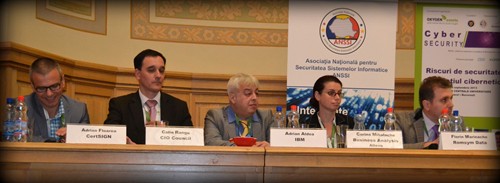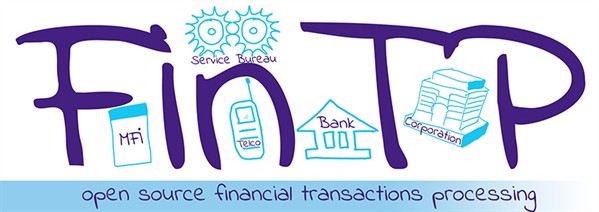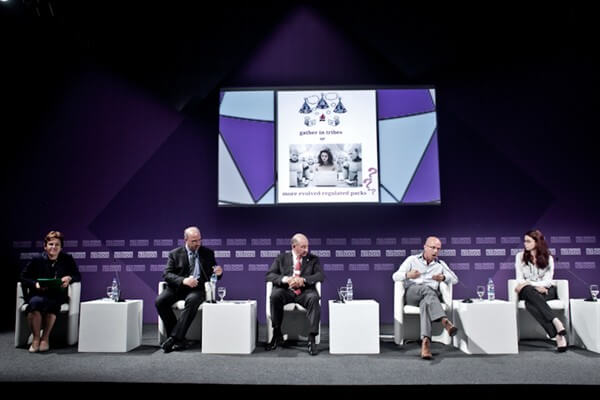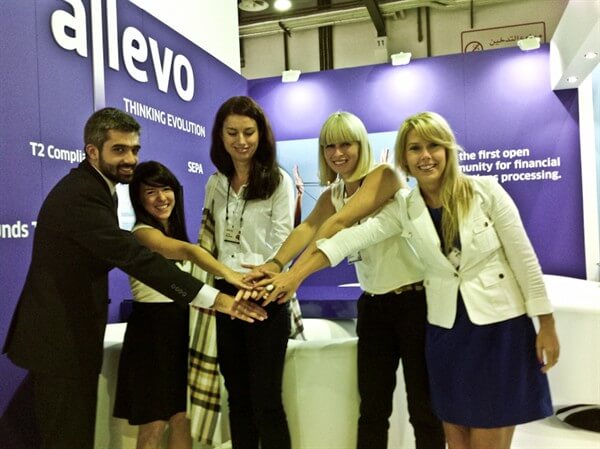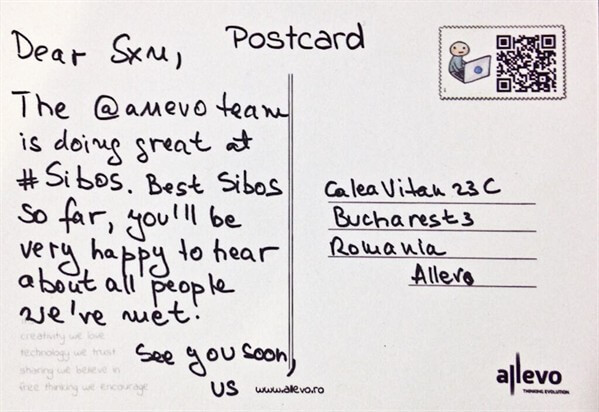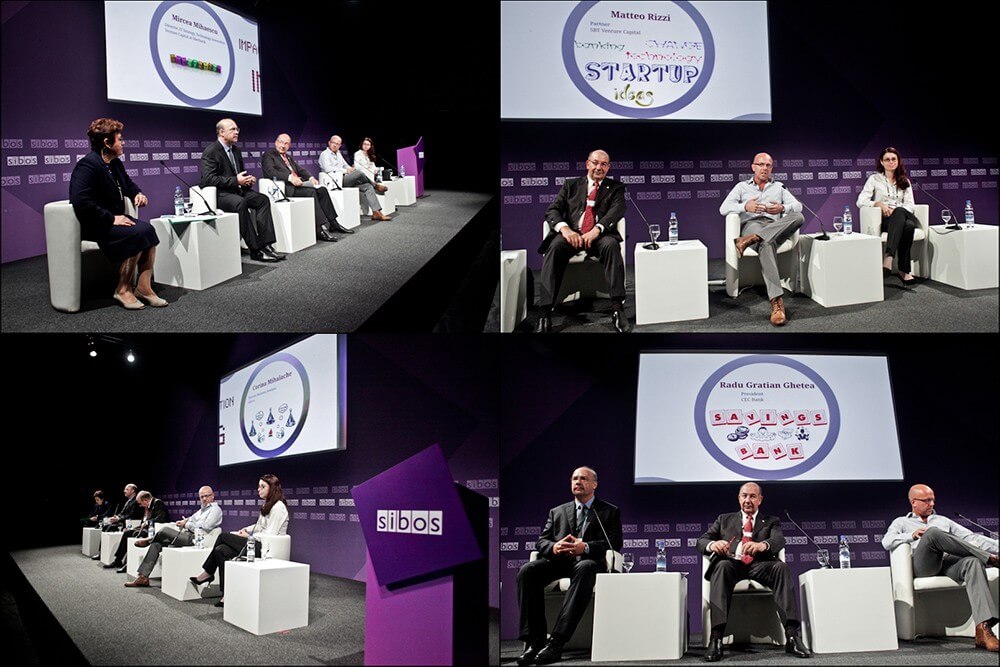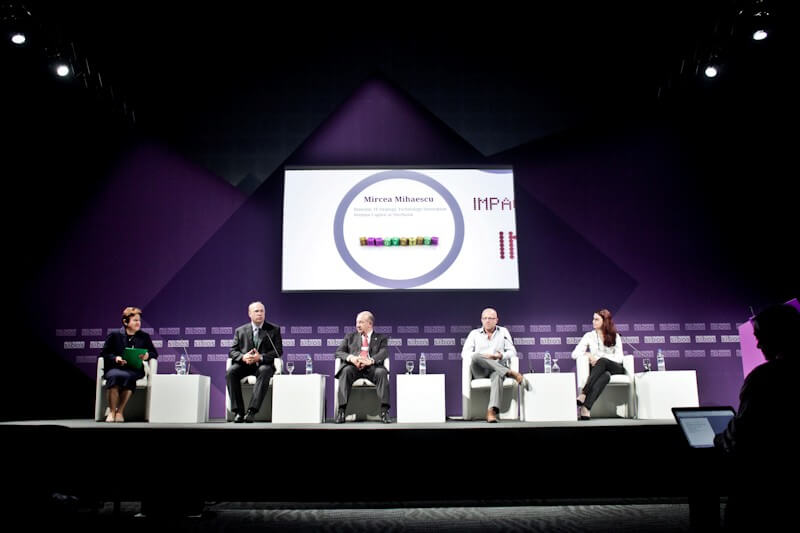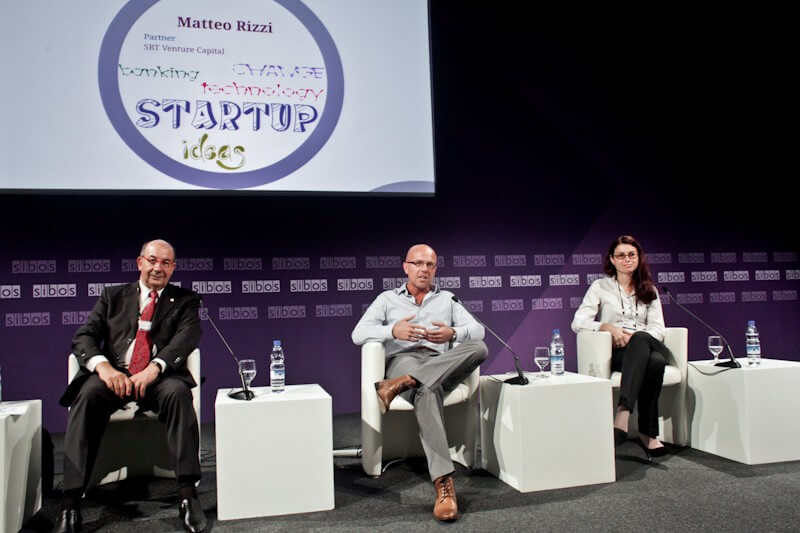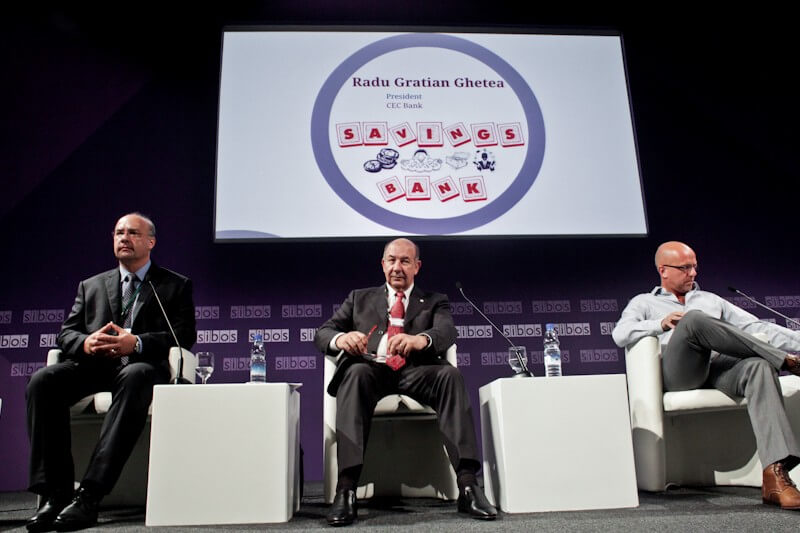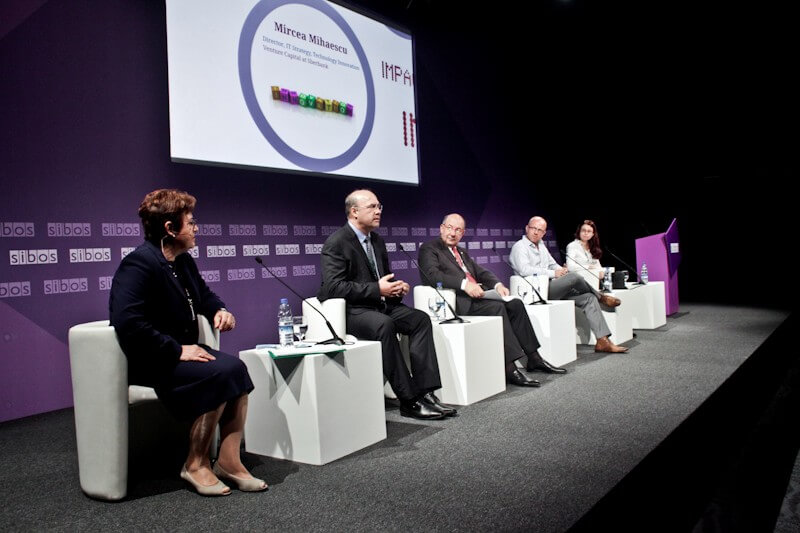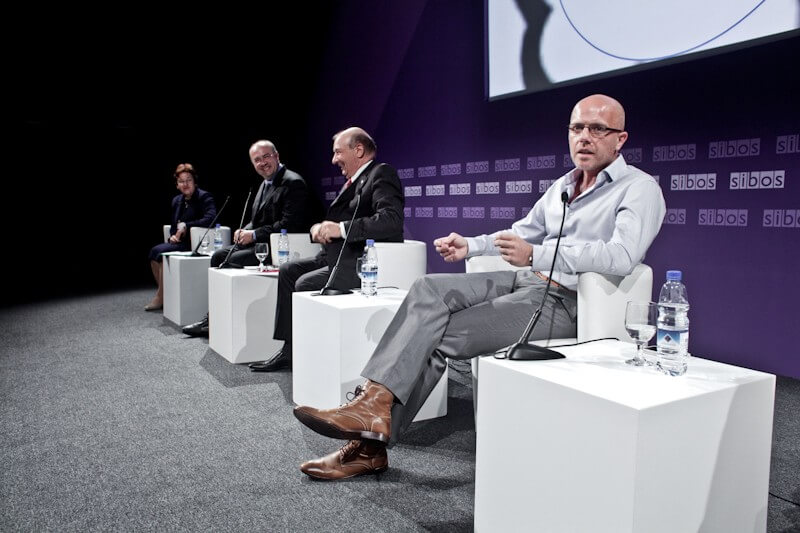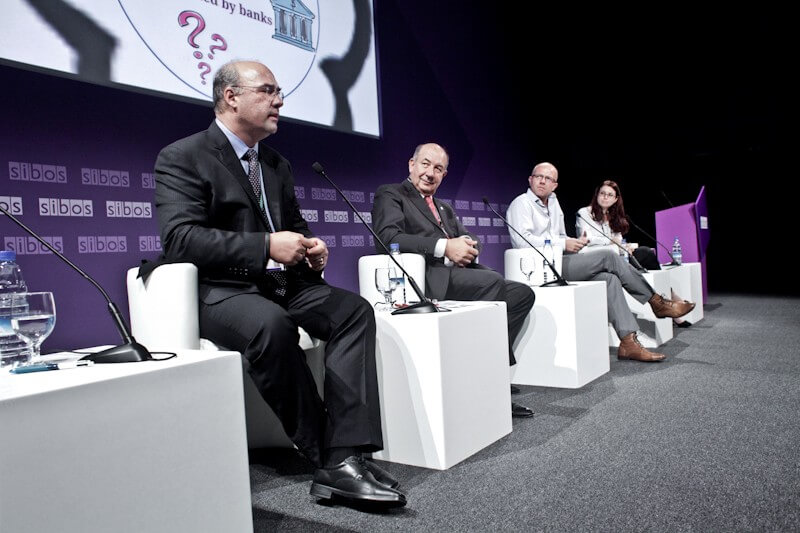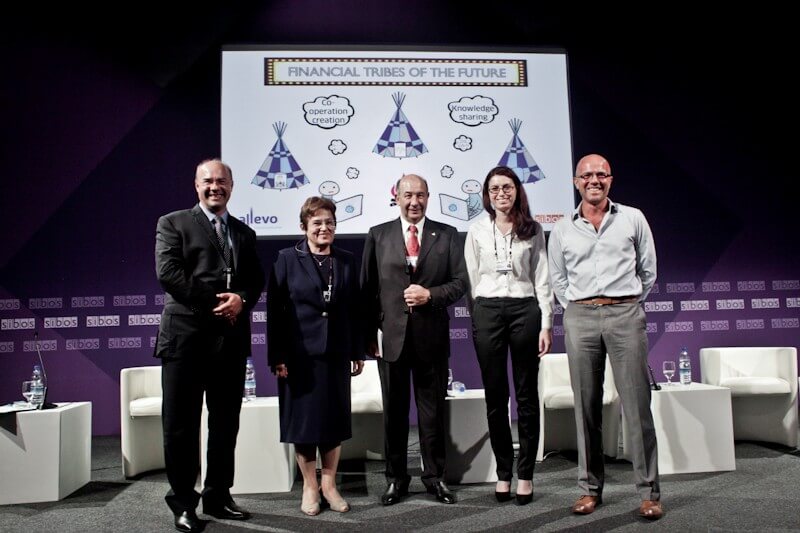A nice evening at the Address Downtown hotel next to the Dubai Mall’s dancing fountains and then it was morning again.
The day starts with a coffee injection with the best tradeshow barista in the world Franco Russo (I blogged about him last year) and then into the first session of the day: Financial tribes of the future, a topic that is close to my heart.
The discussion was based on a slightly Romanian panel:
- Mircea Mihaescu, Director IT Strategy and Technology Innovation, Sberbank
- Radu Gratian Ghetea, President, CEC Bank
- Matteo Rizzi, Partner, SBT Venture Capital
- Rodica Tuchila, Director, Romanian Banking Association
- Corina Mihalache, Director, Allevo
and explored the idea that banking will no longer be a mass market of service in the future, but a collation of many tribes of individuals with financial needs.
The theme of tribes recognises that people are members of many tribes. They are not homogenous segments, but multi-coloured diverse groups connected globally through the internet.
The conversation began with some of the more mature members of the panel reminiscing that, when they were growing up, the idea of using a phone as a computer was science fiction. The phone was a landline stuck in the office. Today, the phone as a computer is a fact.
Now we see the same happening with discussions about augmented computing and location and proximity based financial servicing. This will soon be fact. Others are trying to use this opportunity to steal business from us, and we need to focus upon how to maximise our opportunities which is why we’re investing in future technology today.
That is why we will see all aspects of banking changing, from retail to corporate to investment services.
Trade finance and the supply chains change thanks to mobile connectivity, as you can now electronically track everything from inception to conclusion, end-to-end, without any physical documentation. This will make things far more effective and efficient, and our customers will move to what is most efficient and effective. Take PayPal as an example.
Now when we look at payments and banking, the future is already here … it’s just not widely deployed yet.
We can see that from all the technology around today that will allow instant payments without even using a card or cash, but most merchants and retailers are not ready for this so they still need cards and cash.
Give it ten years and the payment will have moved into the background. You won’t see the payment.
This means that the future of payments is not in the processing of payments, but in the information about money movements. Analysing the data about money will help us understand our customers better and help our customers understand their finances better. That will be the real competitive battleground and to compete in this battleground will require collaboration.
Banks are very poor at collaboration – apart from creating their cooperative SWIFT – and many areas of banking today will not exist in the future without collaboration. We need to make collaboration work to survive. If you look at how the world works today, everything has ‘crowd’ in it somewhere with crowdsourcing and crowdfunding being two that really apply to the banking world. This is why we will need far more collaboration in the future as you cannot work or stand alone in a globally connected world.
Banks are therefore connected companies, not entities in their own right, and it will be the most networked banks, the most connected, that win in the future. This underlines the importance of APIs and getting the reach to gain critical mass.
I like this idea as I recently wrote about PayPal and Google investing $1.5 billion in mobile payments since 2009. PayPal now processes around $20 billion in mobile payments, up from $14 billion last year and just $200 million five years ago. But then you have to remember that PayPal and others run their payment services on the infrastructure of banks.
For example, Citibank’s Transaction Services processed $15 billion in mobile payments this year, up from nothing two years ago. That drive is coming from all the players who sit on top of Citibank. The same with Wells Fargo, JPMorgan, Deutsche and others.
So it may not be the bank processing that is visible in this space but the bank behind the brand. That’s the connected bank model and we will see that model widen more and more over the next decade as banks become deconstituted into components.
In other words, the networked bank will be the bank that offers the most functional components for reconstitution into new supply chains and processing structures.
Meanwhile, we all believe the governments will protect us through regulation, but who are they protecting? The banks or the citizens?
We have seen this systemic failure of the banking industry and the fact that everything cannot be protected, and we are now seeing emerging areas of unregulated activity, such as Bitcoin. Bitcoin is using the internet to work around the frictions of global commerce in a connected world. That is hard to manage and, in fact, governments cannot regulate this effectively. So will regulation protect citizens in the future? No. Not from financial crashes or from new and unregulated infrastructures that work better for them.
So the future is going to be one where tribes of consumers and corporates connect to providers of services where the money movement is integrated and in the background. Banks will need to then consider where they fit into this space and morph to new models of banking and finance.
This fits well with yesterday’s innotribe discussion (see Sibos entry #3) and shows that the future is the bank with the most connectivity in the global mobile internet network.
Enough said … I’m going back for another HSBC coffee and a wander around the exhibit hall.”










